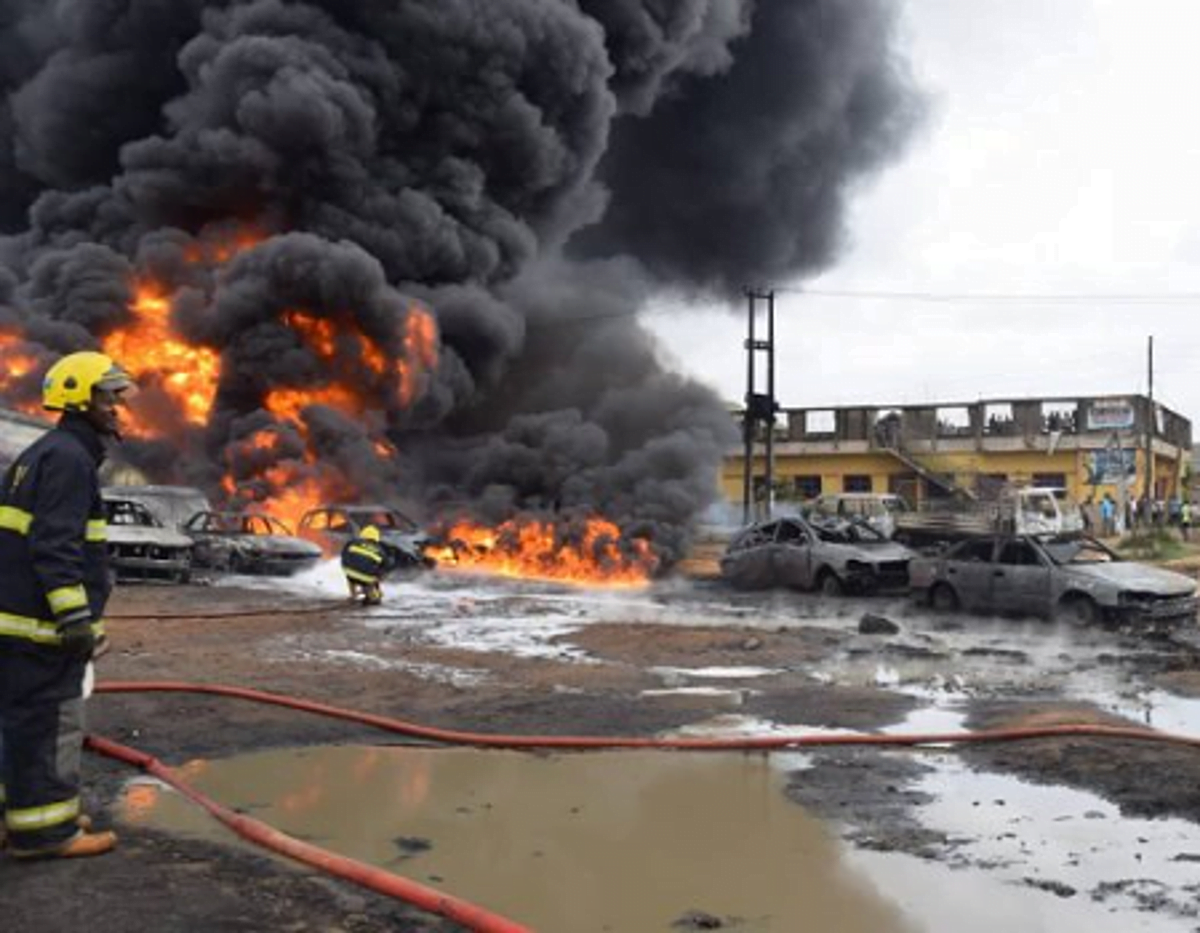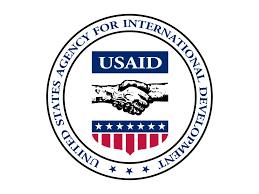Editorial
Addressing the socioeconomic factors contributing to suicide rates in Nigeria

The tragic incident that unfolded in the Magboro area of Ogun State, where Victoria Idowu, a 49-year-old woman, took her own life by hanging herself on a ceiling fan, is a poignant reminder of the deep-rooted issues surrounding mental health in our society.
The discovery of her lifeless body by her son upon his return from a church service emphasises the devastating impact of such actions on loved ones and communities at large.
This unfortunate event, coupled with the recent case of Deputy Commissioner of Police Gbolaha Oyedemi, who also tragically ended his own life, sends shockwaves across the nation. Oyedemi’s untimely demise, particularly given his position within the Force Criminal and Investigation Department in Lagos State, raises questions about the unseen burdens individuals may carry, even in seemingly successful and accomplished lives.
These incidents compel us to confront the pressing need for enhanced mental health awareness, support systems, and destigmatisation efforts within our society.
While the reasons behind such tragic decisions may remain elusive, it is imperative that we foster an environment where individuals feel empowered to seek help without fear of judgment or ostracisation.
As a nation, we must prioritise mental health initiatives, invest in accessible counseling services, and promote open dialogue about mental well-being in homes, workplaces, and communities. Only through collective action and compassion can we hope to prevent further loss and support those struggling with mental health challenges.
The intertwined tales of Victoria Idowu and Deputy Commissioner Gbolaha Oyedemi paint a harrowing portrait of despair echoing across Nigeria’s landscape.
Idowu’s final act, discovered by her son amidst the echoes of church hymns, and Oyedemi’s perplexing departure, once the trusted aide to a former governor, unveil a somber truth: suicide’s haunting grip knows no bounds.
Their stories, etched with the weight of societal expectations and personal demons, illuminate a troubling trend veiling Nigeria in sorrow.
From the seasoned to the youthful, lives are lost to the silent whispers of despair, leaving behind unanswered questions and shattered hearts.
In the shadows of these tragedies, Nigeria grapples with a growing epidemic, where the specter of suicide looms larger with each passing day. The reasons, as diverse as the nation itself, intertwine threads of societal strain, economic woes, mental anguish, and a dearth of solace in the face of adversity.
Yet, amid this darkness, one truth shines unwaveringly: suicide, however tempting, is not an adequate solution. It is a plea for help lost in the silence, a cry for understanding drowned in the noise. In the face of despair, let us extend hands of compassion, build bridges of support, and shatter the silence with voices of hope. For in unity, in empathy, lies the beacon of light guiding us through the darkest of nights.
In 2019, the tragic loss of a university student in Lagos to suicide, amid the weight of academic pressures and depression, stirred conversations about mental health awareness within educational institutions.
The following year, the untimely demise of a renowned Nigerian musician, who was discovered dead by suicide in his Lagos home, cast a spotlight on the silent struggles faced by celebrities and public figures battling mental health issues.
Similarly, in 2020, the distressing case of a young woman in Abuja, who took her own life after sharing troubling messages on social media, underscored the crucial need for accessible support systems for individuals grappling with mental health crises.
Then, in 2021, the heartbreaking loss of a teenager in Kano, driven to suicide by the torment of bullying and harassment at school, sparked urgent calls for concerted action to address both bullying and mental health concerns among students.
These poignant examples serve as reminders of the pressing imperative for heightened awareness, robust support networks, and adequate resources to combat mental health challenges and stem the tide of suicide across Nigeria.
Nigeria faces a sobering reality according to the World Health Organization, grappling with one of Africa’s highest suicide rates, with a notable portion of victims being young people. Worse, the ratio of psychiatrists to population is 1:800,000.
However, there’s a beacon of hope: fostering mental health awareness and education emerges as one of the most potent tools in combating this crisis. Despite prevailing stigmas branding mental health issues as taboo or indicative of weakness, dispelling these misconceptions can pave the way for a more compassionate and supportive society. By shedding light on mental health challenges, we can dismantle barriers to seeking help and foster understanding for those battling depression and suicidal thoughts.
Moreover, addressing the recurring tide of suicides demands an overhaul of mental health services accessibility nationwide. Presently, many Nigerians, particularly in rural areas, face insurmountable hurdles in accessing vital care and support. By bridging this gap and ensuring equitable access to mental health services, we can extend a lifeline to those in dire need, fostering a nation where every individual’s well-being is prioritized and safeguarded.
Governments, healthcare providers, and non-governmental organisations could work together to expand mental health services, train healthcare professionals, and integrate mental health into primary healthcare systems.
To effectively combat the pervasive issue of suicide in Nigeria, collaboration between governments, healthcare providers, and non-governmental organisations is paramount. Together, they can expand mental health services, equip healthcare professionals with necessary training, and integrate mental health into primary healthcare systems.
Establishing robust support networks is crucial for individuals grappling with mental health challenges and suicidal ideation. This entails offering accessible avenues for seeking help, such as helplines, support groups, and online forums. Education initiatives should empower friends, family, and communities to recognize signs of depression and suicidal behavior, fostering environments of support and understanding.
Furthermore, advocating self-care practices like exercise, mindfulness, and relaxation techniques equips individuals with tools to manage their mental well-being and mitigate the risk of suicidal tendencies.
Addressing the persistent scourge of suicide demands a holistic approach that delves into its root causes while providing effective interventions and support for those in crisis. Through concerted efforts to promote mental health awareness, improve access to services, foster support networks, and empower individuals, Nigeria can forge a path towards suicide prevention and cultivate a healthier society for all.
Editorial
Endless turnaround maintenance of Port Harcourt Refinery


Since 2021 when the turnaround maintenance of the Port Harcourt Refinery started, there have been heaps of failed promises of the production commencement date.
First, it was former Minister of State for Petroleum, Timipre Sylva promising severally of commencement of productions of Port Harcourt Refinery, but these promises never came to limelight till he resigned for political calling.
Next was the Managing Director of Port Harcourt Refinery, Ahmed Dikko who at a time said the turnaround maintenance was 98 percent completed and would have commenced operations in December 2023. That promise again was unfulfilled.
The Group Managing Director of Nigerian National Petroleum Company Limited (NNPC Ltd), Mele Kyari equally said that Port Harcourt Refinery would start production in two weeks time, that elapsed in April, 2024. April has come and gone.
The Head, Corporate Communications of NNPC Ltd, Olufemi Soneye was also quoted to have said that the reason for non-commencement of operations of the Port Harcourt Refinery was regulatory and compliance tests. As it seems, all efforts to restart the operations of the Port Harcourt Refinery and by extension other refineries, have been futile.
Political watchers have adduced poor management, corruption, sabotage and lack of political will as some of the problems confronting smooth operations of our refineries. They particularly accused those benefitting from importation of petroleum products as being responsible for the non-functionality of the four refineries in Nigeria.
Political will, of course, plays a major role in shaping directions the policies go. Political will in this instance translates to good leadership, and in this case, the buck stops at the table of the Federal Government, particularly the President, who doubles as the Minister of Petroleum.
Petroleum being the mainstay of the country’s economy should be given all the attention it deserves. The reason being that virtually everything in the country is tied to the petroleum products situation.
Since the announcement of the removal of fuel subsidy on May 29th, 2023 by President Tinubu on assumption of office, life has not been the same in Nigeria. Cost of living has risen astronomically, consequent upon the hike in price of petroleum products.
In the midst of plenty, courtesy of the abundant human and material resources, Nigeria is still often described as the poverty capital of the world. What an irony! Turnaround maintenance of the refineries subsists without end. Every hope is now placed on the Dangote Refinery, a private outfit. While the diesel price slash is commendable, how on earth will a single private entity take the whole country to Eldorado?
We cannot regulate what we do not produce, this is a natural principle that cannot be contravened. We only pray that Port Harcourt Refinery comes on stream someday.
We look forward to that time. Our position is that Government agencies saddled with the responsibility of providing fuel and other petroleum products to Nigeria must do their work and justify their pay.
This onerous task is mandatory and statutory to them and shall amount to disservice if they fail. Our prayer is not for them to fail, but that they fulfil their vows and make the country great for the overall interest of all.
Tecnimont, the Italian company undertaking the $1.5 billion rehabilitation project of the Port Harcourt Refinery has through its Local Managing Director, Gian Fabio Del Cioppo pledged to fulfil the terms of contract, so as far as we are concerned, there is nothing stopping the country from achieving the target of the turnaround maintenance project.
The only clog would of course be lack of political will, which we know could be cultivated. So let all hands be put on deck to achieve results.
Editorial
Gas explosions: Nigeria and its avoidable tragedies


Nigerians die daily for reasons so avoidable it would make a 19th century peasant weep. The deaths are often a product of systemic wickedness, nonchalance, and greed. Too often have gas explosions claimed the lives of Nigerians untimely. Whether it is the leaders refusing to enforce the checks and balances for personal gain, or citizens selling defective gas cylinders, it all balls down to a collective aversion for kindness.
The internet is rife with news of this tragedy occurring in a Sisyphean cycle. Jolted by the cries of the populace, the leaders promise reprieve, release press statements and in the weeks that follow, little to nothing happens. “One must imagine Sisyphus happy,” Camus wrote. Unfortunately, our Nigerian dead imagine nothing.
While people relaxed from their labour, were preparing for the Workers Day celebrations, nine people including a pregnant woman were injured in Tuesday’s gas cylinder explosion at Alaba Lane, Alayabiagba Community of Ajegunle-Apapa, Lagos.
“The fire explosion started around 1:30 pm and immediately, two tricycles were burnt, school children coming back from school were affected. A particular young man was seriously affected as his body was peeling off, but rushed to the Gbagada General Hospital,” according to reports.
The usual suspect is, of course, negligence, as the Director of Lagos State Fire and Rescue Service, Margaret Adeseye, puts it: “preliminary investigation revealed that several various gas cylinders traded within the neighbourhood have one triggered from a susceptible leakage leading to the snapping of a high tension cable and resultant Fire.”
The explosion razed down “four commercial tricycles, six lock-up shops, a bungalow part of properties, while salvaging adjoining structures including a major fuel service station.” Children were hurt, the future of the nation plunged, as usual into avoidable misfortune.
The way out is through. The press releases are wonderful PR statements but they do not bring back the dead, as was the case in Ogun State recently where a truck explosion cost the nation another life. The leaders must enforce the checks and balances put in place. The law is no decoration.
We mustn’t wait until a politician’s family member is involved in a tragic gas accident before “banning” (as is the default response of the Nigerian leadership). The leaders must realise that such misfortunes are contagious, and money is hardly a bulwark against 3rd degree burns in a nation where all its doctors are fleeing.
Renewed Hope requires renewed action. This is all that Nigerians ask of its leaders. All agencies responsible for monitoring trucks, cylinders need to work together to defeat this peculiar evil. Like COVID-19, gas explosions are no respecter of persons.
Of course, citizens too must do their part and resist the allure of profit over the death of others. A society without empathy is headed for a dystopia. It will not matter the price of petrol or electricity tariff, if all that matters is the pursuit of super profit at the expense of one’s neighbour. We owe it to the dead to live fully and graciously. To escape, as we should, avoidable tragedies.
Editorial
Dangote’s diesel price slash proactive step towards economic growth


Oil marketers have continued to dispense Automotive Gas Oil, popularly called diesel, at a price between N1,350/litre and N1,450/litre in various locations across the country despite repeated cuts in the price of the commodity by the Dangote Petroleum Refinery. Although they attributed the high pump price of AGO to transportation costs, taxes and old stock in most of the tanks in their filling stations, they commended Dangote for yielding to their calls for further reduction in the price of AGO from the plant.
The recent reduction in the price of diesel to N940 per litre by Dangote Refinery is a welcome development. It will, hopefully, help reduce the cost of transportation, which will presumably, lead to a reduction in the prices of goods and services. This is good news for consumers who have been grappling with high inflation and weak purchasing power.
The price change of N940 applies to customers buying five million litres and above from the refinery, while N970 is for customers buying one million litres and above. It would be recalled that the management of Dangote Petroleum Refinery announced a further reduction of the price of diesel from 1200 to 1,000 Naira per litre barely two weeks ago.
The strategic impact of affordable diesel prices on the economy cannot be overstated, especially in a country like Nigeria where transportation, a key component of any business activity, is controlled by the private sector. Diesel is the fuel that powers most commercial vehicles, including trucks, buses, and generators, which are essential for the movement of people, goods and services across the country.
If diesel prices are high, it directly affects the cost of transportation, which in turn affects the prices of goods and services. For example, if a trader has to pay more for transportation, they will pass on the cost to the end consumer, resulting in higher prices for basic commodities like food, clothing, and household items.
This marks the third major reduction in diesel price in less than three weeks when the product was sold at N1,700 to N1,200 and also a further reduction to N1,000 and now N940 for diesel and N980 for aviation fuel per litre.
The decision of Dangote Refinery to first crash the price from about N1,750/litre to N1,200/litre, N1,000/litre and now N940 is an eloquent demonstration of the capacity of local industries to impact the fortunes of the national economy positively. The trickle-down effect of this singular intervention promises to change the dynamics in the energy cost equation of the country, amid the inadequate and rising cost of electricity.
The reduction will have far-reaching effects in critical sectors like industrial operations, transportation, logistics, and agriculture, contributing to easing the high inflation rate in the country. It must be noted that most manufacturing companies in Nigeria generate their own electricity powered by diesel. If the price of that energy source is affordable, a lot of companies will be back in operation with the added advantage of enhanced employment opportunities and a friendlier cost of products.
Before now, manufacturers were confronted with abnormal costs of doing business instigated by the energy crisis. What followed was a steep rise in prices of factors of production as well as other inputs that impacted negatively in the economy. As a result, many foreign companies had to leave the country due to the high cost of doing business. This and the worsening power supply had and is still having very devastating effects on businesses at the moment.
Nigeria’s annual inflation rate has surged to 33.2 percent, the highest since March 1996, up from 31.7 percent in the previous month. This sharp increase in inflation is primarily driven by the steep depreciation of the local currency and the removal of fuel subsidies. Food inflation, which constitutes a significant portion of Nigeria’s inflation basket, has continued to climb, reaching 40 per cent in March, the highest level since August 2005. Additionally, the annual core inflation rate, excluding farm produce and energy, has soared to a multi-year high of 25.9 per cent in March. Consumer prices, however, eased slightly to three per cent, down from 3.1 percent as of February 1.
The benefits of affordable diesel prices extend beyond the consumer level. It also has a positive impact on the nation’s economy as a whole. For one, it will help reduce the cost of production for manufacturers and other businesses that rely on diesel-powered machinery. This will make them more competitive and ultimately lead to increased economic growth.
Furthermore, affordable diesel prices will also make it easier for small and medium-sized enterprises (SMEs) to thrive. SMEs are the backbone of any economy, and reducing their operational costs will help them grow and create jobs which, in turn, will boost the economy.
Ultimately, the artificial fuel queues resumption is uncalled for at this critical time of untold hardship on Nigerians. Since the planned removal of the fuel subsidy has failed, the best thing for the APC-led administration is to carry out an urgent review of the policy. Nigerians have witnessed untold hardship in the past few days due to the scarcity of petroleum products in the country.
Few filling stations selling fuel are doing so at cutthroat prices. If you are lucky enough to get commercial transportation, you should be ready to pay more than you already budgeted. This situation has shown that the said fuel subsidy removal by the Tinubu-led administration is a failure, a professional scam and there is a need for an urgent review of the policy.
We urge the Federal to deploy emergency means of resolving the unbearable fuel scarcity situation because Nigerians are passing through hell.
-
capital market2 years ago
Rt.briscoe, FBNH, Others halts negative performance of stock market
-
Finance3 months ago
Court orders Sen. Victor Umeh to repay N136m bank debt to AMCON
-



 Abuja Update2 months ago
Abuja Update2 months agoUNDP, FG partnership needed to achieve inclusion, equity- Minister
-
Abuja Update1 month ago
Banks drive stock market performance with N147bn gain
-



 Business2 weeks ago
Business2 weeks agoTingo Group unveils Tingo Electric, Tingo Cola drink at Lagos launch
-



 Health2 weeks ago
Health2 weeks agoCapacity training will reduce migration of health workers- NPHCDA
-
News4 months ago
Oil thieves sponsoring malicious media campaign against Navy – Spokesman
-



 Infotech1 month ago
Infotech1 month agoWorld Backup Day: NITDA urges Nigerians to ensure backup of data
















